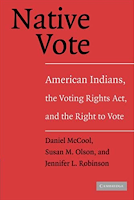This week the Theatre department premieres
The Effect of Gamma Rays on Man-in-the-Moon Marigolds by Paul Zindel.
Zindel grew up in post-World War II New York City. He and his older sister were raised by their mother after their parents separated when Zindel was a child. Zindel’s mother kept the family together by moving them from apartment to apartment, pursuing various schemes and odd jobs, and renting out rooms to boarders with terminal illnesses. The frequent moves and his mother’s distrustful nature effectively isolated Zindel from others his own age. “I was a misfit growing up,” he recalled. “I had no father at a time that was considered freakish. I couldn’t catch a baseball … I desperately wanted friends and to be liked...” [1]. To make matters worse, Zindel caught tuberculosis when he was fifteen and spent much of the next two years living in a sanitarium, the youngest patient in a hospital full of adults.
By the time Zindel was released and returned to high school, he was fascinated with science and reading plays. “What a great love I had of microcosms,” he recalled, “of peering at other worlds framed and separate from me.” [1] He tried writing a play for a student government fundraiser and successfully provoked a reaction with his “strange sense of humor – macabre, I believe, was the term they used.” [3]
Zindel studied chemistry at Wagner College, but also signed up for a creative writing class taught by playwright Edward Albee and attended professionally produced plays such as Lilian Hellman’s family drama
Toys in the Attic. Under Albee’s mentorship, Zindel wrote a play with autobiographical elements,
Dimensions of Peacocks, dealing with dementia and mother-child relationships.
After graduating from college, Zindel took day jobs first as a technical writer and then as a high school science teacher while continuing to write plays. His second and third plays closed after a couple of performances, but his fourth play,
The Effect of Gamma Rays on Man-in-the-Moon Marigolds, changed the course of his career. It was his first play to be produced outside of New York, premiered in 1965 by Houston’s Alley Theatre. Critics grumbled that it had “one of the most discouraging titles yet devised by man,” yet they appreciated Zindel’s command of theme and characterization and likened
Gamma Rays to Tennessee Williams’ breakthrough play
The Glass Menagerie. [2] No doubt Zindel, who “never missed an opening night of a Tennessee Williams play” in college, appreciated the comparison. [2] The head of the Alley Theatre invited Zindel to become a playwright-in-residence and optioned his next play, allowing Zindel to quit teaching and pursue a career as a playwright. More plays and adaptations of
Gamma Rays for television and film soon followed, and Zindel was honored with the 1971 ALA Notable Book Award and Pulitzer Prize for Drama.
By this time, Zindel’s career path had undergone another mutation. When an editor suggested he try writing for children, Zindel talked with teens and “realized fairly quickly that there weren’t many books around that showed teenage protagonists in a modern reality concerned with realistic problems – so I gave it a shot.” [1] Zindel went on to become one of the twentieth century’s most renowned YA authors, never forgetting his own experiences as an awkward misfit striving to find his home in the world. “I know it’s a continuous battle to get through the years between twelve and twenty – an abrasive time,” he explained. “And so I write always from their own point of view.” [1]
Ruth Strickland writes that “Zindel sees himself as a born playwright, and he believes ‘that the seeds of theater are born inside of us.’ While he feels that few playwrights are writing honest plays, he also believes that ‘no one can kill Theater.’ He sees it as a ‘device for survival’ that may experience a drought, but can never be starved out of existence; it will always reemerge.” [2]
Buy tickets for The Effect of Gamma Rays on Man-in-the-Moon Marigolds on the
University of Redlands website.
Works Cited
[1] Zindel, Paul, and Teri Lesesne. “Humor, Bathos, and Fear: An Interview with Paul Zindel.” Teacher Librarian, vol. 27, no. 2, Dec. 1999, pp. 60–62. Gale Literature Resource Center.
[2] Strickland, Ruth L. “Paul Zindel.” Twentieth-Century American Dramatists, edited by John MacNicholas, Gale, 1981. Gale Literature Resource Center, Gale, http://link.gale.com/apps/doc/H1200002318/LitRC?u=redl79824&sid=zotero&xid=4007a843.
[3] Paul Zindel: Biography by Paul. http://www.paulzindel.com/finalpages/BIO/biobypz.htm. Accessed 9 Feb. 2020.








